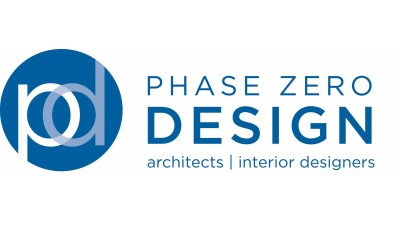Retail Design Expert Explains Why Risk-Taking Boosts The Value Of Your Asset

For most developers, increasing the value of their assets may include a paint job, some new signage, etc., but is that really going to increase your ROI and the value of your property? We asked Shawn Bland about Phase Zero Design’s approach to making retail properties more valuable.
Bisnow: How does Phase Zero Design approach a tired or dead mall?
Shawn: Developers hold or purchase tired and dead malls because they see the potential of what the property could be. We take that same vision and challenge our clients to be risk-takers. What if you reduced square footage? What if you don’t put new tenants back into the existing space or change the use? Our approach is a bit unorthodox because we can analyze the property differently. We’ve been in the game for a long time, giving us the expertise to understand retailers' needs and combine them with the developer’s goals.
We practice design-thinking where we task everyone at our firm to design with vision, purpose and risk. We push our clients to think outside the "four walls and roof" that is retail. We want to understand the goals of the client and the property and then we design to fit that.
Bisnow: Where did Phase Zero Design use this approach?
Shawn: One great example is Norwichtown Mall. The original mall owner struggled to reinvent the enclosed mall to attract customers and tenants. Winstanley Enterprise was bold enough to purchase the property with a completely different leasing vision and perspective. We worked closely with the development team to take a dead, enclosed mall and transform it into a vibrant and thriving grocery-anchored center by reducing the square footage from 240k SF to 160k SF. The results drew in higher-valued tenants, which dramatically increased the ROI. Developers should not be afraid to give up square footage to create a more productive use of space.
Bisnow: What about a ground-up project with a challenging site?
Shawn: Of course, for most urban areas, the good sites are few and far between. From a design perspective, these types of projects offer unique opportunities to be creative, integrate different types of technologies and create experiences unlike other developments.
Quarry Walk in Oxford, CT, is a 32-acre active quarry and is under construction and being transformed from an industrial site to a true lifestyle center. The quarry was coming to the end of its life and being in Connecticut’s fastest-growing town, there was an opportunity to take advantage of the region’s demographics and centralized location.
Kudos to Haynes Development for being risk-takers. Tom Haynes had a vision to develop housing, retail, grocery and a main street into a sustainable site. The goal was to create a cohesive design and incorporate the quarry's essence throughout the project while not losing the sense of the site’s history.
Bisnow: What is your advice to retail developers looking to take their projects from a lemon to lemonade?
Shawn: You are a developer for a reason, which most likely means you are a risk-taker already, so be a risk-taker when it comes to rethinking your property. Don't be afraid to explore unconventional things that were once unheard-of in the industry. Retail is evolving. We know the trends and we can work with those clients looking to increase the value of their asset and produce creative, innovative destinations.
To learn more about this Bisnow content partner, click here.

